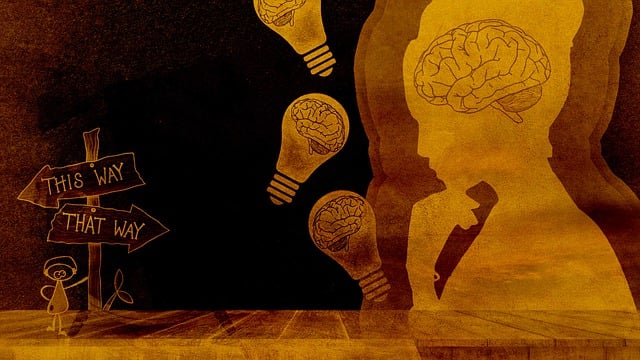Centennial Child Abuse Therapy emphasizes the vital skill of emotion regulation for children and teens, impacting their overall well-being and future mental health. Through structured sessions teaching mindfulness, positive thinking, and confidence-building techniques, therapists help clients develop self-care routines, navigate relationships assertively, and regulate moods effectively. The therapy's supportive environment, characterized by active listening, empathy, and validation, fosters trust, encourages open emotion expression, and promotes healthier coping mechanisms for long-term mental health growth.
Emotion regulation techniques are essential tools for children and teens navigating a complex world. This article explores the profound impact of teaching these skills, particularly through the lens of Centennial Child Abuse Therapy. We delve into understanding emotion regulation, its significance in child development, and practical strategies to empower young individuals. Additionally, we highlight how a supportive environment fosters long-term growth, emphasizing the role of therapy in creating resilient and emotionally intelligent futures.
- Understanding Emotion Regulation and Its Impact on Children
- The Role of Centennial Child Abuse Therapy in Teaching These Skills
- Practical Techniques to Empower Kids and Teens
- Creating a Supportive Environment for Long-Term Growth
Understanding Emotion Regulation and Its Impact on Children

Emotion regulation is a vital skill for children to develop, as it significantly influences their overall well-being and future mental health. By understanding and managing their emotions effectively, kids can foster self-esteem improvement and build resilience, crucial aspects in navigating life’s challenges. This process involves recognizing and accepting feelings, learning to express them constructively, and developing strategies to calm down or change unhelpful emotional reactions.
Centennial Child Abuse Therapy emphasizes the importance of these skills, as proper emotion regulation can prevent and mitigate the adverse effects of trauma and stress on children. Moreover, it contributes to better mental health policy analysis and advocacy by addressing the root causes of emotional dysregulation, which are often interwoven with systemic issues like neglect or abuse.
The Role of Centennial Child Abuse Therapy in Teaching These Skills

Centennial Child Abuse Therapy plays a pivotal role in teaching emotion regulation techniques to individuals who have experienced trauma or face ongoing challenges with their mental health. This form of therapy is designed to help clients understand and manage their emotions effectively, providing them with valuable tools for long-term well-being. Through structured sessions, therapists guide individuals through the process of identifying and expressing feelings healthily.
One of the key aspects of Centennial Child Abuse Therapy is its focus on teaching practical conflict resolution techniques. By learning to de-escalate situations and communicate their needs assertively, clients can better navigate interpersonal relationships. Additionally, this therapy emphasizes the importance of Self-Care Routine Development for Better Mental Health. It encourages individuals to prioritize self-care activities that promote relaxation, mindfulness, and emotional balance, thereby enhancing their ability to regulate moods effectively.
Practical Techniques to Empower Kids and Teens

Teaching children and teens effective emotion regulation techniques is a powerful tool for navigating life’s challenges. At Centennial Child Abuse Therapy, we emphasize practical strategies that empower young individuals to manage their emotions healthily. One such method gaining popularity is Mindfulness Meditation, which encourages kids to focus on the present moment, observe their feelings without judgment, and cultivate a sense of calm. By regularly practicing mindfulness, youth can enhance their emotional intelligence and develop better coping mechanisms.
Additionally, fostering Positive Thinking and building Confidence are vital components of emotion regulation. Our therapists guide young clients in reframing negative thoughts and beliefs, promoting more positive self-talk. Engaging in activities that build confidence, such as setting achievable goals or participating in hobbies, can significantly impact a child’s emotional resilience. These techniques, combined with learning to identify and express emotions appropriately, equip kids and teens with invaluable skills for managing stress, anxiety, and other intense feelings.
Creating a Supportive Environment for Long-Term Growth

In teaching emotion regulation techniques, establishing a supportive environment is paramount for fostering long-term growth in individuals, especially those recovering from Centennial Child Abuse Therapy. This involves creating a safe and non-judgmental space where learners feel empowered to explore their emotions freely. Therapists play a crucial role in cultivating such an environment by employing techniques like active listening, empathy, and validation, which encourage clients to express themselves openly without fear of repercussions.
By fostering a sense of trust and understanding, therapists help individuals develop healthier coping mechanisms, enhancing their ability to navigate emotional challenges. This supportive setting also facilitates the exploration of positive thinking and self-esteem improvement, addressing underlying issues that may contribute to mental illness. Moreover, reducing the stigma associated with mental illness through these interactions can significantly impact an individual’s journey towards holistic healing.
Emotion regulation is a vital skill for children’s healthy development, especially those who have experienced trauma. Centennial Child Abuse Therapy plays a crucial role in teaching these skills, offering specialized approaches that foster resilience and well-being. By combining practical techniques with a supportive environment, as outlined in this article, professionals can empower kids and teens to navigate their emotions effectively. This process not only enhances their current mental health but also promotes long-term growth and overall life satisfaction.











